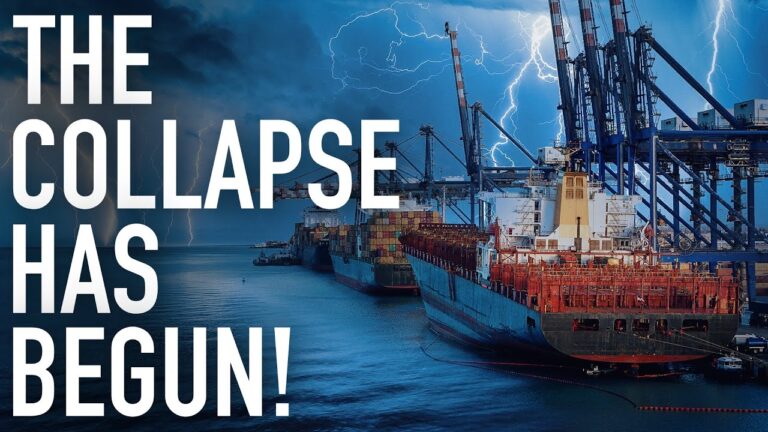30 Facts about the Supply Chain Collapse
- Based on this Video Report from Epic Economist, Over the past few years, the global supply chain has fallen into a crisis that never seems to end: the industry has become extremely vulnerable to global events, consumers have been dealing with shortages and delivery delays, and uncertainty has become the new normal.
- Since the middle of 2020, strains in global production networks reflected the imbalances between the supply and demand of a wide range of goods and created several headwinds for the global economic recovery.
- From that point on, the world has started to suffer from soaring inflation, raw material shortages, rising commodity prices, and a massive spike in shipping and freight costs.
- With every link of the supply chain impacting businesses both large and small, trying up with the globally disrupted supply chain evolution has been a recipe for disaster.
- While consumers have started to panic buy and hoard products once they realized empty shelves were becoming a common thing, companies have started to overorder and stockpile goods in anticipation of further supply chain bottlenecks.
- However, that has created even more shortages and pushed the price of virtually everything to historic highs. Simultaneously the cost of sending containers from China to the US has reached astonishing levels over the past 24 months. For some trade routes, the price of standard 40-foot containers faced a 400 to 600 percent increase last year.
- In December 2021, the Economist estimated that the spot price of sending such a box from Shanghai to New York skyrocketed from $2,500 in 2019 to $15,000.
- On top of that, the latest port closures have recently resulted in a significant slowdown in global manufacturing. They also exposed the weaknesses of an interdependent global trade system that has become way too entangled to be able to run smoothly.
- Problems continue to pile up on top of each other, and industry executives are warning that we haven’t seen the worst of this crisis just yet. In other words, the global supply chain breakdown has only just begun.
- Problems cannot be fixed overnight, and more and more issues continue to emerge with each passing day. Even if we experience moments of relative stability, a lot more turbulence is still ahead.
- As this perfect storm of factors continues to intensify, 2022 is right on track to be the worse year ever for supply chains. This means we should all prepare accordingly because at this point it only takes one single blow to interrupt the flow of goods across the world, and a recovery may not arrive until 2024.


